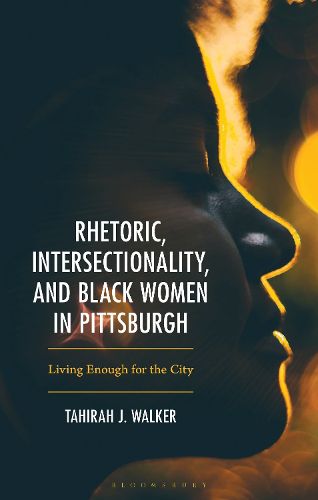Readings Newsletter
Become a Readings Member to make your shopping experience even easier.
Sign in or sign up for free!
You’re not far away from qualifying for FREE standard shipping within Australia
You’ve qualified for FREE standard shipping within Australia
The cart is loading…






In this book, Tahirah J. Walker provides an analysis of how Black women in Pittsburgh navigate the public sphere through an examination of the ways that intersecting identities shape discourse, silence, and reclamation.
The author draws from historical events, personal narratives, and community case studies to take a deep look at the intersectional marginalization, resistance and transformation journeys of Black women in a city deemed most unlivable for them. Walker amplifies unique presentations of language, silence and reclamation as they are negotiated via race, gender, and class. The book serves as testimony to the way intersectionality is turned on its head in Pittsburgh to create spaces of love and freedom through fearless speech (parrhesia), strategic listening, and community engagement practices. At its heart, this project is a love letter to every Black woman who has lived in Pittsburgh and asked herself why, affirming that while so much research exists on the struggles of being a Black woman in this city, it is equally important to recognize the innovations and triumphs.
$9.00 standard shipping within Australia
FREE standard shipping within Australia for orders over $100.00
Express & International shipping calculated at checkout
Stock availability can be subject to change without notice. We recommend calling the shop or contacting our online team to check availability of low stock items. Please see our Shopping Online page for more details.
In this book, Tahirah J. Walker provides an analysis of how Black women in Pittsburgh navigate the public sphere through an examination of the ways that intersecting identities shape discourse, silence, and reclamation.
The author draws from historical events, personal narratives, and community case studies to take a deep look at the intersectional marginalization, resistance and transformation journeys of Black women in a city deemed most unlivable for them. Walker amplifies unique presentations of language, silence and reclamation as they are negotiated via race, gender, and class. The book serves as testimony to the way intersectionality is turned on its head in Pittsburgh to create spaces of love and freedom through fearless speech (parrhesia), strategic listening, and community engagement practices. At its heart, this project is a love letter to every Black woman who has lived in Pittsburgh and asked herself why, affirming that while so much research exists on the struggles of being a Black woman in this city, it is equally important to recognize the innovations and triumphs.